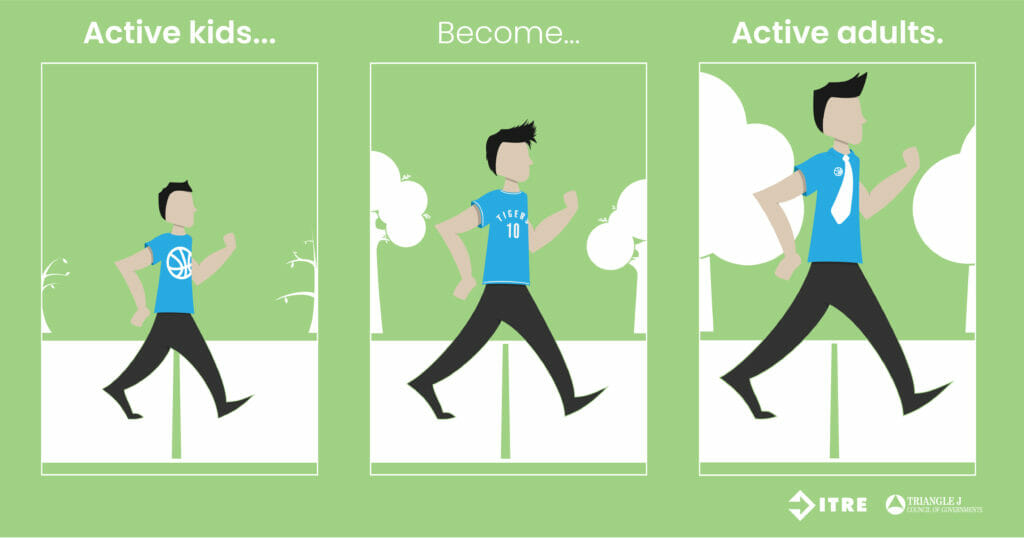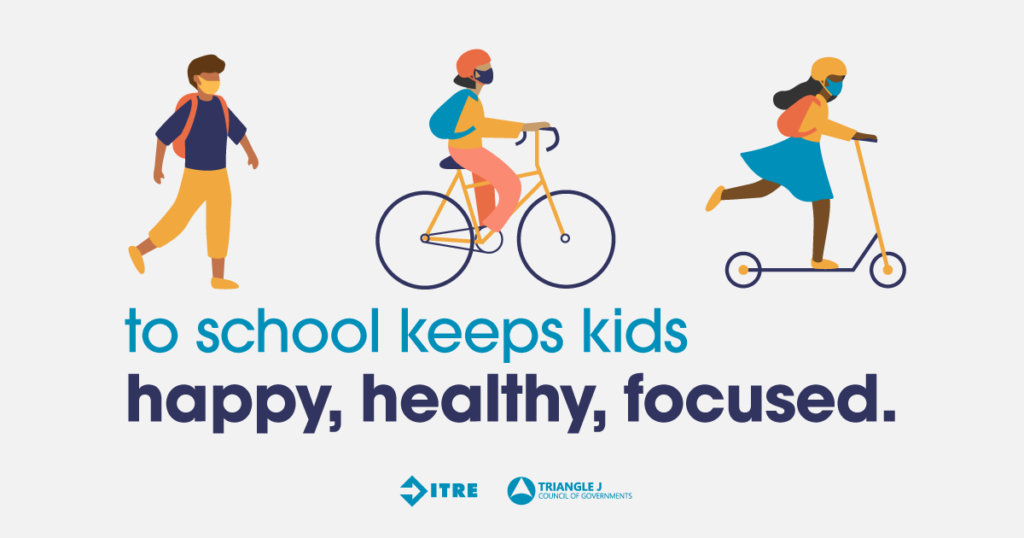Walking or biking to school is a fun way to get outside, explore your community, and make friends.
Walking or biking to school also keeps kids Happy, Healthy, and Focused.
Keeping Kids Happy
It is well known that activities like walking and biking are good for physical health. Did you know that walking and biking is also good for your child’s mental health?

Physical exercise reduces the risk of depression in kids ages 6 – 13 (Source: CDC).
A 2021 study found that “children and adolescents who are more physically active showed better general mental health and fewer mental health problems” (Source: International Journal of Environmental Research and Public Health).
Another 2020 study found that physical activity promotes happiness (Source: International Journal of Behavioral Nutrition and Physical Activity).
Keeping Kids Healthy
The Centers for Disease Control and Prevention (CDC) recommends that children get at least one hour of physical activity every day. Walking or biking one mile to school is a great way for kids to get the recommended activity.
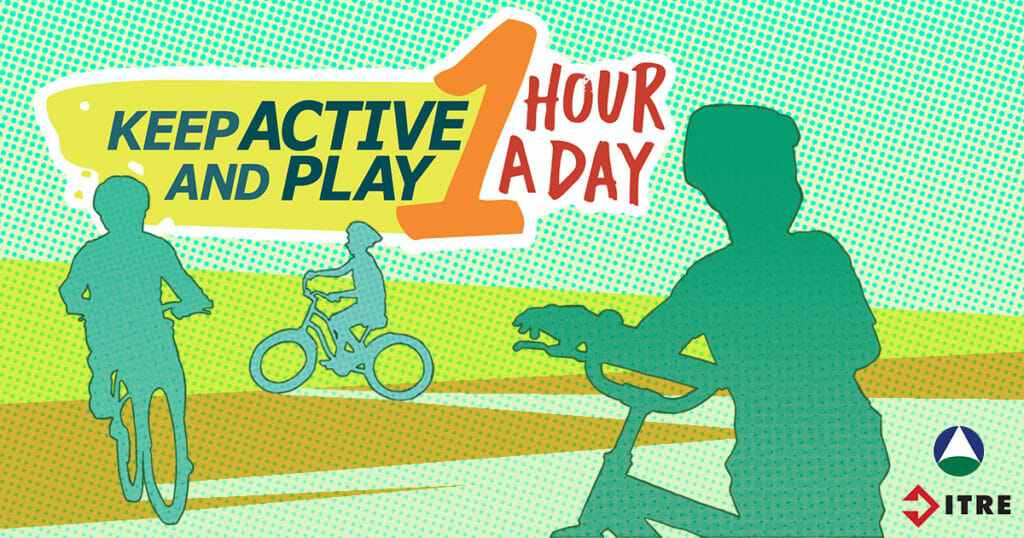
Physical activity, like walking or biking to school, improves bone health, cardiorespiratory, and muscular fitness in kids (Source: CDC).
Kids who walk to school are more active the rest of the day (Source: BMJ) and are more likely to become active adults (Source: National Library of Medicine).
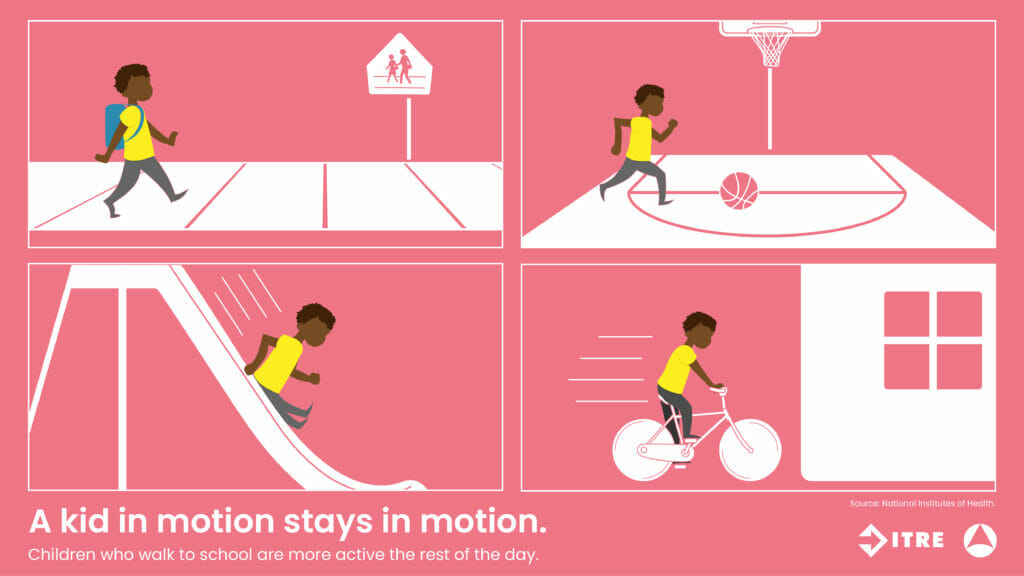
Keeping Kids Focused
Short bouts of moderately-intense exercise like walking can improve cognitive control and attention in children (Source:Neuroscience).
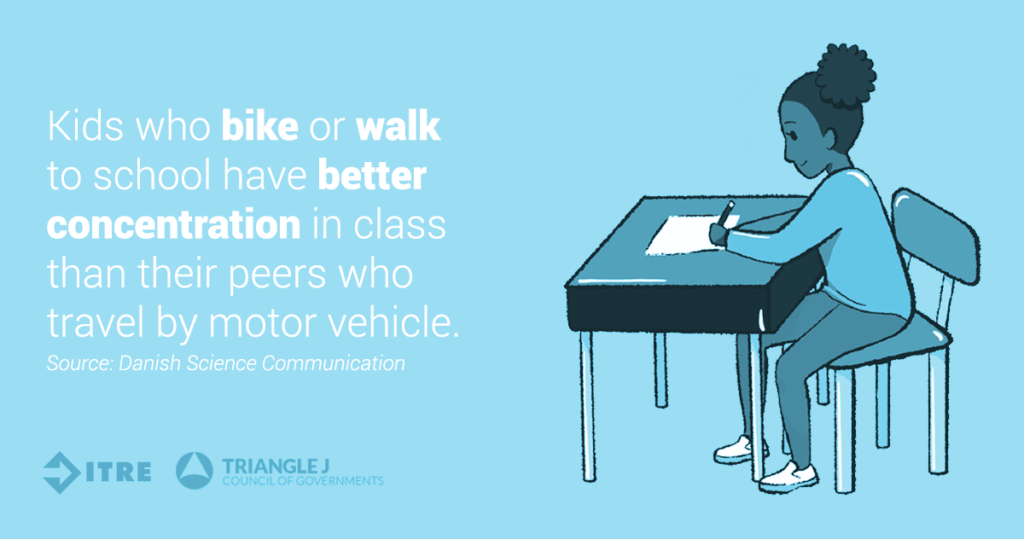
One study found that children who walk or cycle to school, rather than being driven by their parents, have better concentration (Source: Nordic Science).
These benefits seem to continue through life. Physical activity in childhood can lead to higher cognitive function later in life. In one study, participants who exercised when they were children did better on cognitive tests regardless of their current age (Source: Science News).
